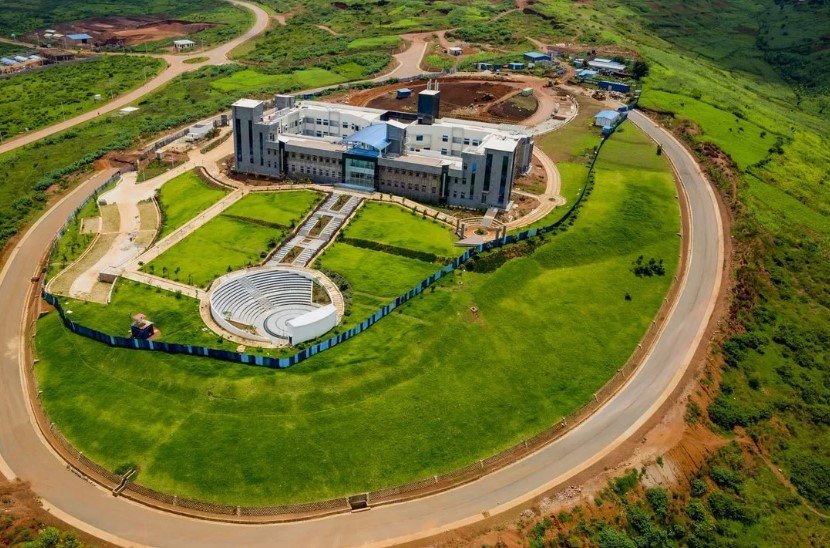From Kigali to Konza, a new kind of economic revolution is gaining ground—one powered not by minerals or oil, but by code, connectivity and sheer ambition.
Several African nations are doubling down on technology as the engine of economic growth. Rwanda, Kenya, and a handful of others are investing in everything from digital payment systems to smart cities. It’s a bet on brains over barrels—and for now, it’s paying off.
But even as this tech-powered optimism spreads across the continent, cyber risks are crashing the party. Utilities—power, water, and critical infrastructure—are increasingly vulnerable to digital attacks, raising concerns about whether Africa’s new digital scaffolding can withstand future shocks.
Rwanda’s Digital Playbook: Policy Meets Ambition
Rwanda isn’t shy about what it wants: a high-income status by 2050. And it’s betting on tech to get there.
Kigali Innovation City (KIC) is central to this vision. It’s not just another tech park. It’s a whole ecosystem—universities, startups, and multinationals rubbing shoulders in a specially zoned urban cluster.
It’s a big idea, but not without groundwork. Rwanda has spent years digitizing services, from health to utilities.
The country’s utility sector is also getting a digital glow-up.
• Through partnerships with MTN and Airtel, Rwandans can now pay water and electricity bills with their phones.
• This not only increases transparency but slashes transaction delays and cuts down corruption.
Still, it’s not just about payments. It’s about mindset. A whole generation of Rwandan students is growing up coding, not just calculating.

Kenya’s Silicon Savannah Is Buzzing—but Not Bulletproof
Kenya’s tech story begins with M-PESA—and then explodes.
Back in 2007, the mobile money platform redefined finance across East Africa. Fast-forward to 2025, and Kenya is now home to Konza Technopolis, a sprawling smart city 60km from Nairobi.
This government-backed city is being built in partnership with South Korea and is designed to host research institutions, startups, and multinational tech firms.
The stakes? High.
The goal? To make Kenya a regional powerhouse in IT, life sciences, and high-end manufacturing.
But progress hasn’t come without a price.
In 2024, a survey revealed that:
-
67% of Kenyan utility and energy firms faced at least one cyberattack.
-
Phishing scams, ransomware, and system outages topped the list of threats.
-
Most firms admitted they lacked the cyber talent to respond effectively.
The rush to digitize has sometimes outpaced security. And now, that’s catching up.
Digital Infrastructure Is Booming—So Are Cyber Headaches
Across Africa, digital infrastructure is going up fast. But security measures? Often an afterthought.
Smart meters, automated billing systems, and online customer dashboards are great—until they’re breached.
Desigan Govender, Product Portfolio Manager at Conlog, recently explained how smart metering is reshaping energy management across Africa. But he also admitted that cybersecurity still lags.
Let’s break it down in a simple table:
| Feature | Benefit | Risk if Breached |
|---|---|---|
| Smart Water Meters | Real-time leak detection, efficiency | Unauthorized shutdowns, data theft |
| Digital Billing Platforms | Faster payments, transparency | Billing fraud, phishing vulnerabilities |
| Grid Management via IoT | Predictive maintenance, energy savings | Remote sabotage, grid instability |
Africa’s utilities are caught in a weird limbo—racing ahead on innovation, but dragging behind on digital defense.
Small Nations, Big Tech Hopes
Smaller African economies are also getting into the game.
Take Ghana. It’s quietly scaling its e-government platform, linking tax filing, land registration, and business permits into one digital portal.
Or Namibia, which is now running AI pilot programs in its agriculture ministry to forecast droughts and optimize irrigation.
Even landlocked countries like Uganda are pushing digital public infrastructure initiatives with help from the World Bank and India’s Aadhaar tech.
There’s a subtle shift happening. Tech isn’t being treated as a luxury anymore—it’s a utility. Like water or electricity.
Who’s Paying for All This?
Here’s the tricky part. Infrastructure needs funding. And tech infrastructure? Even more so.
By 2040, the world will need $93 trillion in infrastructure investment, according to a McKinsey Global Institute estimate.
Africa’s slice of that will be big. But where’s the money going to come from?
Governments are already courting private players, big and small:
-
Google’s Equiano subsea internet cable now connects West Africa to Europe.
-
Microsoft and G42 have promised to build data centers in East Africa.
-
African Development Bank (AfDB) has launched a $1.5 billion initiative to digitize agriculture.
But local banks? Often still skittish. Especially when returns aren’t immediate.
Still, momentum is building.
A Continent on the Cusp—but With Its Guard Down
The mood on the ground is equal parts hopeful and anxious.
Digital platforms are opening up access. Kids in Kibera are learning code. Farmers in Ethiopia are checking crop prices online. Small businesses in Lagos are selling through Instagram.
But there’s a creeping fear too—of hacking, digital identity theft, or entire grids being taken down by malware. And most regulators are still playing catch-up.
This isn’t just about apps and access anymore. It’s about whether Africa’s digital leap can be both fast and safe.








